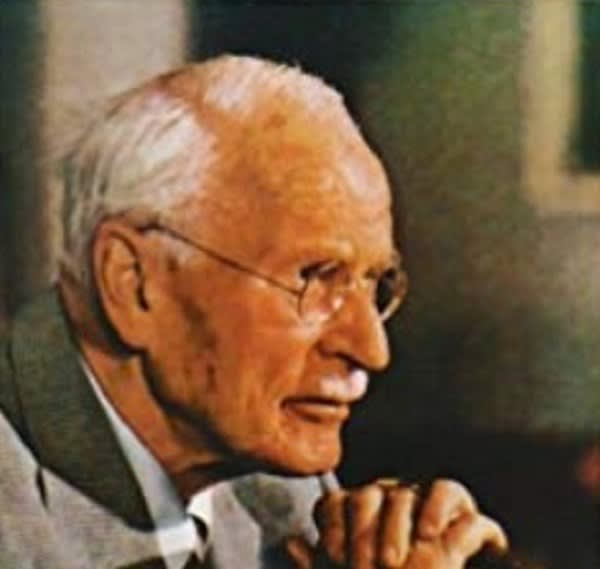
「私は決して患者を何かに変えようとはしませんし、いかなる強制も行使しません。 私にとって最も重要なことは、患者が自分の物事の見方に到達する必要があるということです。 私の治療の下では、異教徒は異教徒になり、キリスト教徒はキリスト教徒、ユダヤ人はユダヤ人になります。彼の運命が彼に規定していることによると。」
-カール・ユング、思い出、夢、反射
“I never try to convert a patient to anything, and never exercise any compulsion. What matters most to me is that the patient should reach his own view of things. Under my treatment a pagan becomes a pagan and a Christian a Christian, a Jew a Jew, according to what his destiny prescribes for him.”
-Carl Jung, Memories, Dreams, Reflections
邦訳書名:ユング自伝
ユング自伝 1―思い出・夢・思想 (日本語) 単行本 – 1972/6/21
カール・グスタフ・ユング (著), アニエラ・ヤッフェ (編集), 河合 隼雄 (翻訳), & 2 その他
https://www.amazon.co.jp/dp/4622023296?tag=24889039-22&linkCode=osi&th=1&psc=1
"そのベールをはぎ取るのは非常に苦痛な手順ですが、心理的な成長の一歩一歩が、新しいベールをはぎ取ることを意味しています。私たちは多くの皮を被ったタマネギのようなものであり、本当の核心にたどり着くためには、何度も何度も自分の皮をむかなければならないのです。
- カール・ユング
"It is a most painful procedure to tear off those veils, but each step forward in psychological development means just that, the tearing off of a new veil. We are like onions with many skins, and we have to peel ourselves again and again in order to get at the real core."
– Carl Jung
あなたの道が何であるかを教えてくれるグルは必要ありません。自分の進むべき道を明確にするために、アカシックの記録は必要ありません。あなたの知識を妨害している感情的な破片を取り除くだけでいいのです。誤った認識の層をはがすだけでいいのです。あなたの美しい骨の内側を見るだけでいいのです。あなたの本当の道はあなたの中にコード化されており、あなたの存在の中核に住んでいます。そこにはそれがあり、発掘されて人間性を発揮する機会を待っているのです。ヘルパーは、クリアリング{(不要な物を取り除く)}をサポートすることはできますが、どの道があなたを呼んでいるのかを知ることはできません。彼らはあなたのユニークな魂の文字から読み取ることはできません。できるのはあなただけだ。あなたはあなた自身の現実の彫刻家であり、あなたの道具を他の誰にも渡してはならない。
-- ジェフ-ブラウン
"You don’t need a guru to tell you what your path is. You don’t need the Akashic records to clarify your course. You just need to clear the emotional debris that obstructs your knowing. You just need to peel away the layers of misidentification. You just need to look inside of your beautiful bones. Your true-path is encoded within you, living at the core of your being. There it is, waiting for its opportunity to be excavated and humanifest. Helpers can support the clearing, but they cannot know which path calls you. They cannot read from your unique soul-scriptures. Only you can. You are the sculptor of your own reality- don’t hand your tools to anyone else."
-- Jeff Brown
上師の写真を削除して、自分の写真を貼るという考えは、私たちがどのように教師との同一化や英雄/偶像崇拝に陥ってはいけないかを説明する例えである。イデオロギーもまたその問題に陥る方法を忘れてはいけません。
英雄崇拝とは、私たちがある種の催眠術の呪文の下にいるときに、その人についての理想化された完璧さの私たちの夢のような状態以外は何も見ることができないということです。誰かがそのヒーローの私たちの忠実な "信念 "に反対する何かを言うとき、私たちは英雄の私たちのイメージを保護するためにトリガされた膝の突発的になる自動反射モードで反応します。だから、私たちは自分の権威から操作しているのではなく、私たちが保持しているその「ヒーロー/アイドル」のイメージに自分の力を与えてしまっているのです。
私達が私達自身の権威(自己実現)に立っているとき、私達は幻想を「見通す」ことができ、かつて私達を欺いた呪文を破ることができます。
私たちが自分の権威の中にいて、正しいことと間違ったこと、真実と偽りを見分ける能力を保持しているときに、指導者や教師の話を聞いたり、彼らが書いた資料に耳を傾けるのは一つのことであり、私たちが彼らの催眠術の呪文の下で膨らませられ、彼らが聴衆に投影する可能性のある隠されたメッセージの影響を受けやすいときには、まだ別のものです。
"よく知られた話に禅師が弟子に言った" "道中で仏陀に会ったら彼を殺せ" これは殺人を犯せと言っているのではなく、弟子たちに自分たちが最も大切にしているものを再評価させ、基本的なものと考えていたものを再考させようとしているのです。"
The idea of removing the guru’s picture and putting your own up is an analogy explaining how we should not fall into identification or hero/idol worship with a teacher. Lets not forget how ideologies also fall into that issue.
Hero worship is when we are under a type of hypnotic spell that we cannot see anything but our dream-like state of idealized perfection about that person. When someone says anything that opposes our faithful ‘belief’ in that hero we react in automatic reflex mode where we become knee-jerk triggered to protect our image of the hero. So we’re not operating from our own authority but have given our power away to that image we hold of that ‘hero/idol’.
When we’re standing in our own authority (Self-realized) we’re able to ‘see through’ the illusions and break the spells that once fooled us.
Its one thing to listen to leaders or teachers speak or to the material they’ve written when we’re in our own authority and retain our ability to discern right from wrong and truth from falsehood… and yet another when we’re inflated and under their hypnotic spell and susceptible to any possible hidden messages that they project onto the audience.
“There's a fairly well known story in which a Zen master tells his students, "If you meet the Buddha on the road, kill him." This wasn't an exhortation to commit murder, it was an attempt to force the students to re-evaluate what they held most dear, to reconsider everything they considered fundamental.”



















